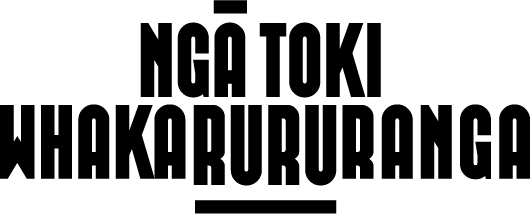Celebrating 30+ Years of the Mataatua Declaration
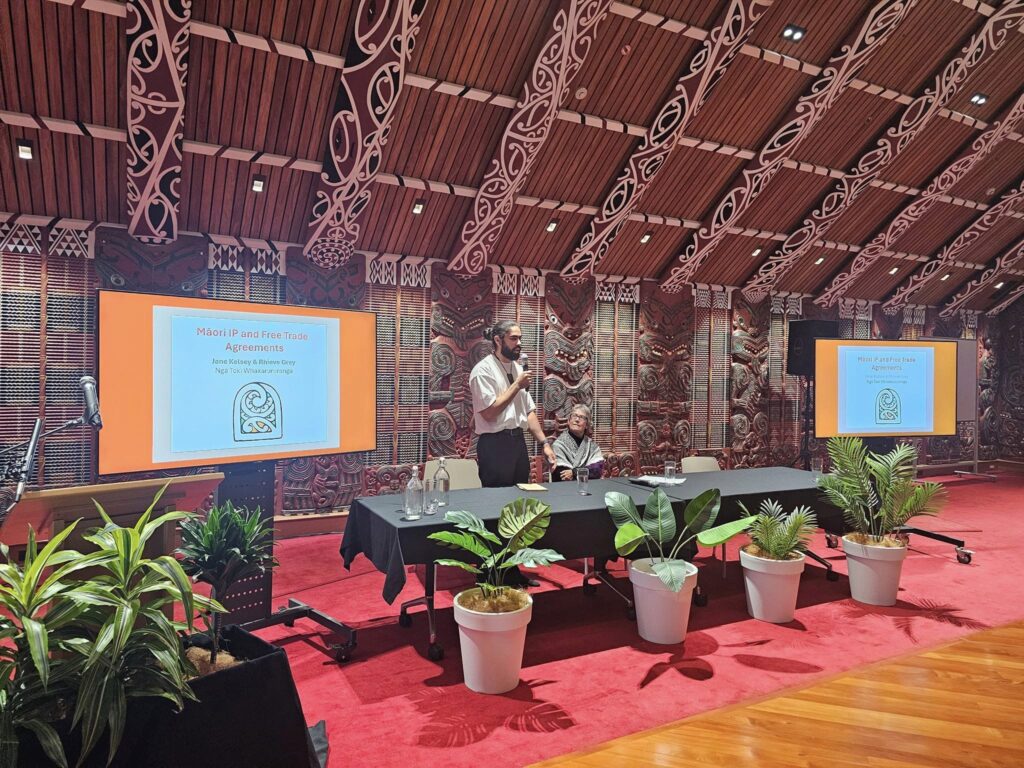
Jane Kelsey (pūkenga) and Rhieve Grey (Te Hiwa) speak about Māori IP and Free Trade Agreements at the celebrations.
On May 14-15 members of Ngā Toki Whakarururanga attended and spoke at celebrations for 30+ years of the Mataatua Declaration. The celebration was hosted in Whakatane at Te Mānuka Tūtahi Marae, by Aroha Mead and the leadership of Ngā Ahuatanga o te kai, namely Linda Smith and Julia Coates. Donna Kerridge (Kaihautū), Jane Kelsey (Pūkenga) and Rhieve Grey (Te Hiwa) attended the celebration and gave a presentation about the challenges that free trade agreements pose for the Cultural and Intellectual Property Rights of Indigenous Peoples.
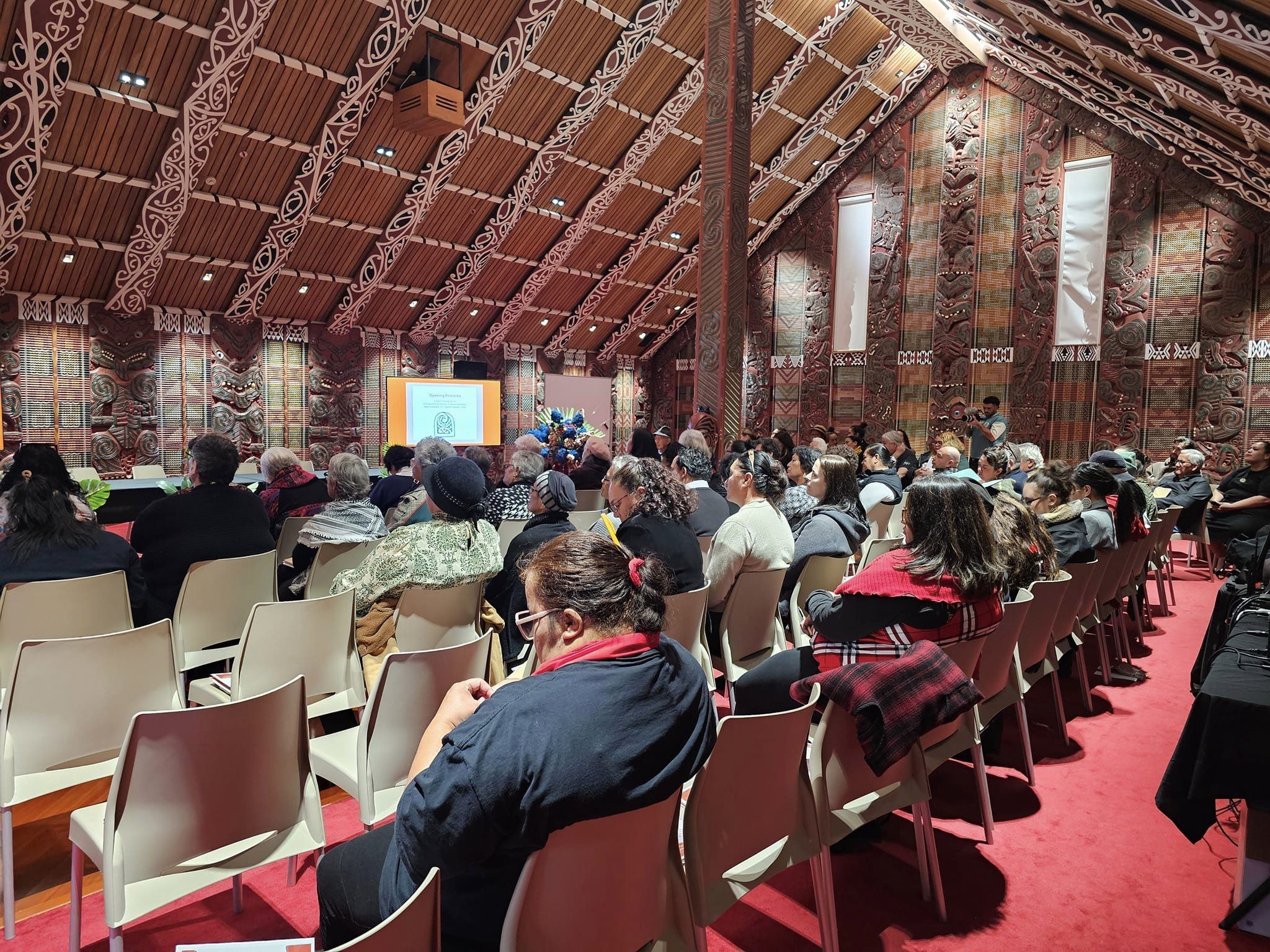
Guests at the celebration of the Mataatua Declaration at Te Mānuka Tūtahi Marae. Photo source: Aroha Mead.
The Mataatua Declaration came about in 1993, after nine Iwi of Mataatua convened the first international conference on the Cultural and Intellectual Property Rights of Indigenous Peoples. The hui was held over seven days in June and was hosted across the marae of Mataatua, in the Bay of Plenty region. The plenary adopted the Mataatua Declaration on the Cultural and Intellectual Property Rights of Indigenous Peoples, which declared that “Indigenous Peoples of the World have the right to self-determination and in exercising that right must be recognised as the exclusive owners of their cultural and intellectual property”.
The declaration was subsequently presented (both in English and Spanish) to the Indigenous Peoples Working Group on Indigenous Populations at the United Nations by a delegation of kaumātua including Hohepa Mason, Onehau Phillis, and Tira Autahi Moai Tihi as well as Aroha Mead and representatives from the Coordinating Body of the Indigenous Peoples of the Amazon Basin. The declaration was then opened for signatures and was signed by Indigenous Peoples from across the world.
You can find the Mataatua Declaration on the Cultural and Intellectual Property Rights of Indigenous Peoples here.
Hui Taumata
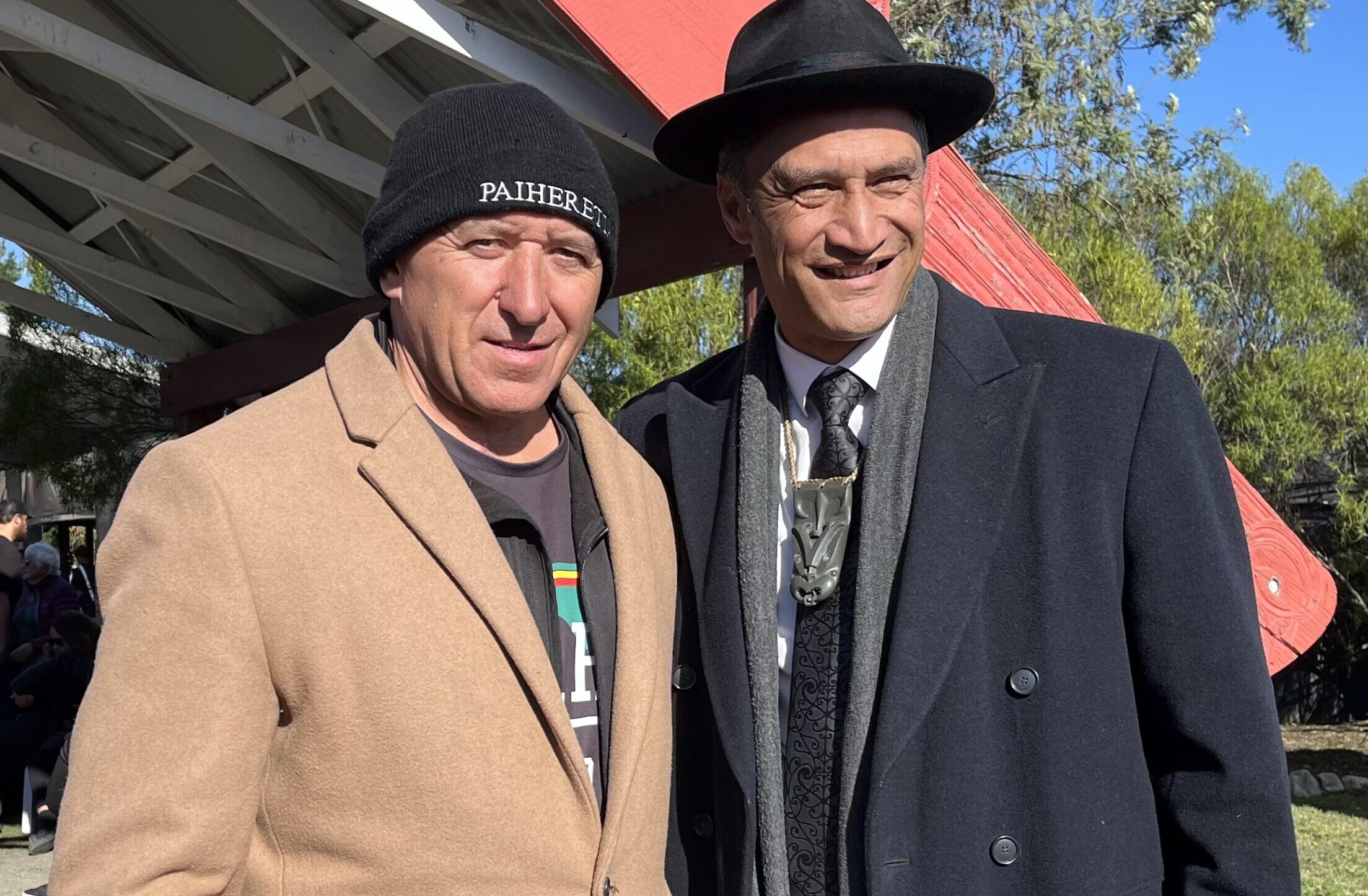
Ngā Toki Whakarururanga co-convenor Pita Tipene with Ngāti Kahungunu Iwi Incorporated Board chairman Baden Barber. Photo source: File
We were honoured by the invitation from Ngāti Kahungunu invitation to share our korero at the Hui Taumata Tino Rangatiratanga hui on 31 May in the wake of the violence being imposed on our people and our whenua by the Coalition government and their denigration of the kawenata tapu, Te Tiriti o Waitangi and He Whakaputanga.
It goes without saying that we stand firm on our Tiriti-driven kaupapa in the international trade space and stay true to how our tūpuna would have fought these battles: be resolute, be proactive, be staunch, and true to ourselves and our values. Being effective requires us to preserve a strategic balance, one that challenges Kāwanatanga and pushes the boundaries while maintaining voice and presence in relationships with the Tiriti partner.
In our commitment to kotahitanga, we will work across diverse perspectives to advance out shared responsibilities and interests and counter Crown strategies to divide and rule – but always with Te Tiriti as the unshakeable pou. See the below www.ngatoki02.localdev website and www.huitaumata.co.nz
ACC Rongoā conference
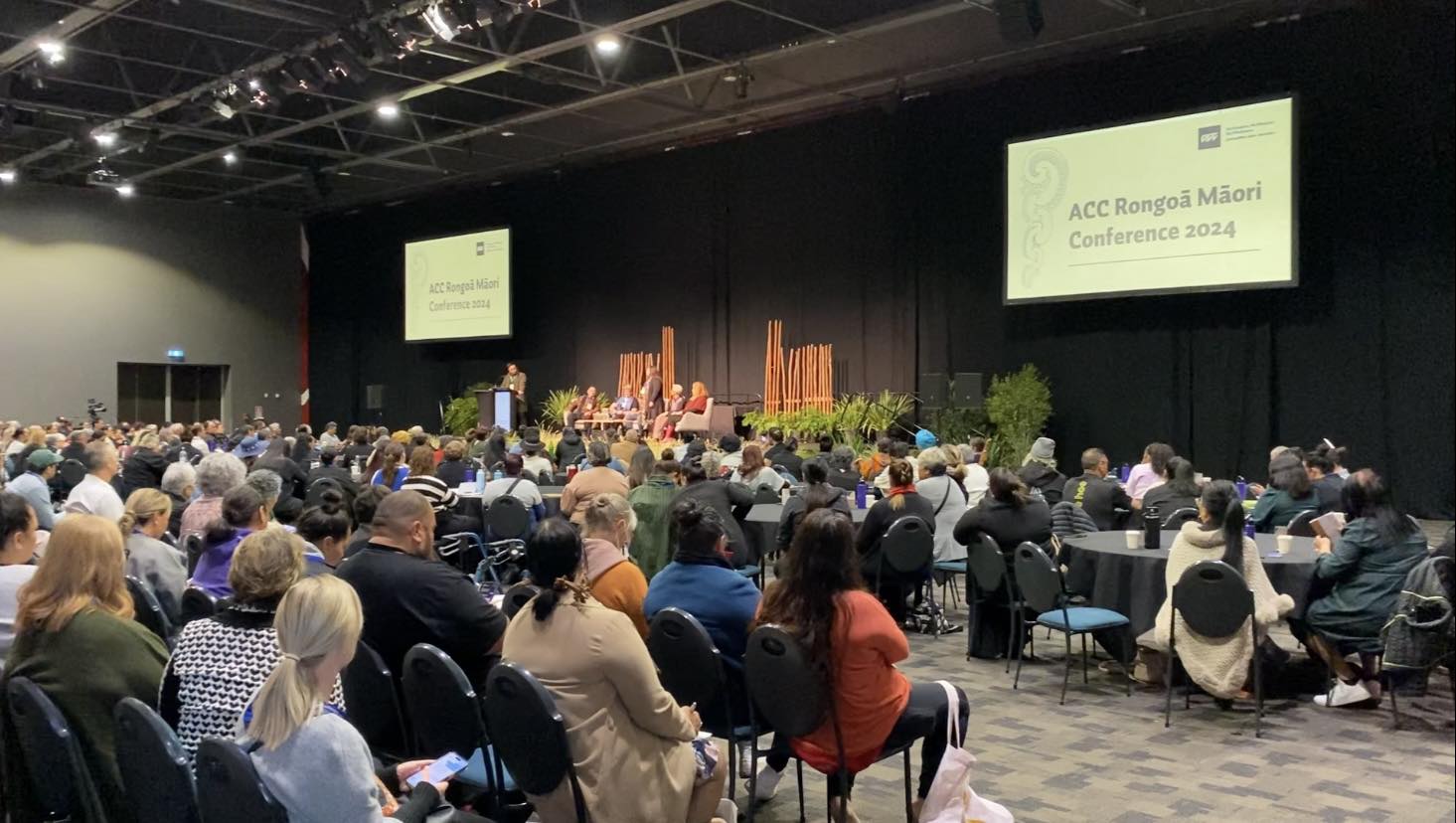
ACC Rongoā Māori Conference in Rotorua. Photo source: File
On May 21-23 was the ACC Rongoā Māori Conference in Rotorua. With more than 400 guests in attendance, the two-day-long conference was a celebration of traditional Māori healing and an opportunity for collaboration to support positive health outcomes for whānau and hapori Māori.
Ngā Toki Whakarururanga kaihautū, rongoā Māori practitioner and member of ACC’s rongoā advisory panel, Donna Kerridge, was a guest speaker and panelist at the hui. She spoke to hundreds of attendees, including practitioners and healthcare workers, about the past and future of rongoā Māori. Her kōrero also focused on education about the impacts and threats that free trade agreements can have on the practice of rongoā Māori.
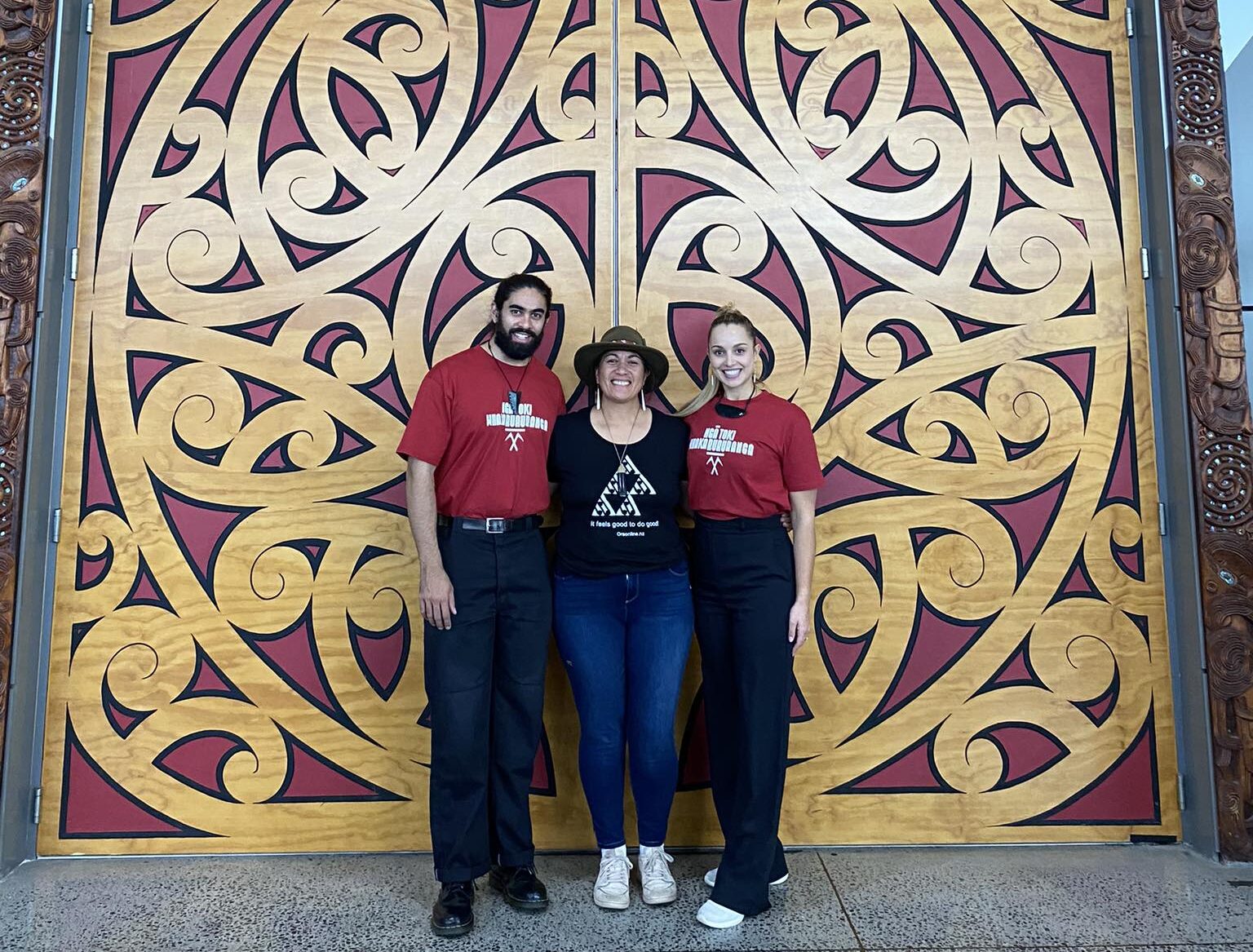
Rhieve Grey, Molly Konui and Jess Tyson. Photo source: File
During the conference, Rhieve Grey (Te Hiwa) and Jess Tyson (Te Manu Tukutuku) had a stall where they hosted a competition and shared resources to help educate guests about protecting rongoā in the trade space. The stall gained a lot of attention over the two days with guests showing genuine interest in the mahi being done by Ngā Toki Whakarururanga as well as a willingness to learn more about how trade impacts the practice of rongoā Māori.
Watch one of Donna’s presentations at the conference on our Facebook page here. Listen to her interview with Radio NZ about the conference here.
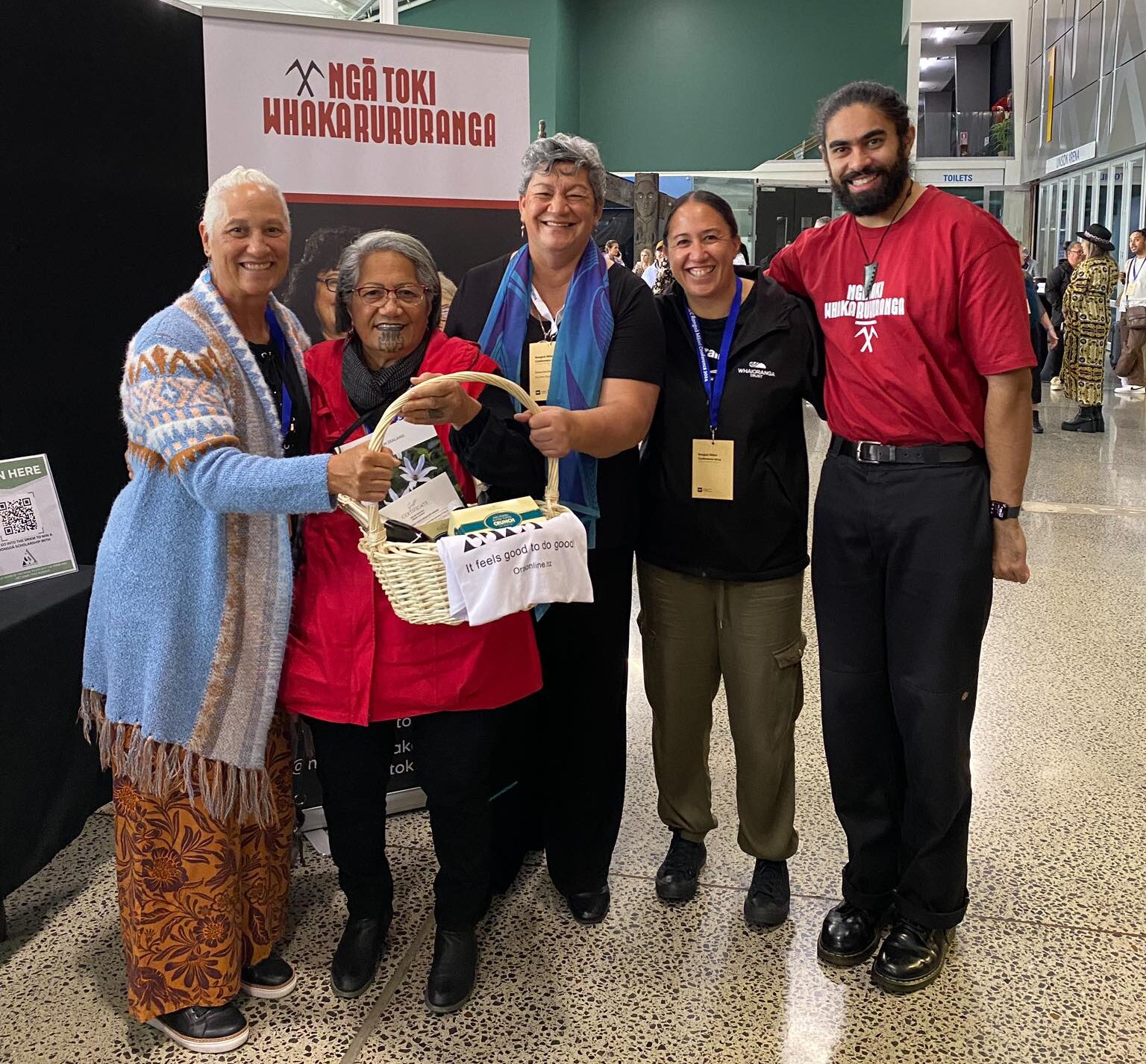
Donna Kerridge and Rheive Grey gifting competition winners their prize. Source: File
Interview with Donna Kerridge
Protecting rongoā in the trade space
We sat down with Donna in an interview to talk about protecting the practice of rongoā in the international trade space. Topics of the kōrero included:
- How policies have affected rongoā Māori in the past
- Current threats imposed by free trade agreements
- Advice to rongoā practitioners, healthcare workers and policy makers on how they can help protect the practice of rongoā Māori
Watch the video below and visit our website here for more resources.
